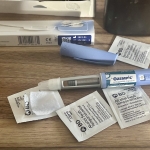Healthcare Giant Cigna Sued for Using Algorithm to Deny Claims

Alpha Photo. Used under Creative Commons license. https://www.flickr.com/photos/196993421@N03/52638572164/
Health insurance giant Cigna has been sued for using a secret computer algorithm to systematically deny thousands of medical reimbursement claims in a matter of seconds, allegedly without a doctor ever opening the patients’ files. The algorithm was first uncovered by investigative reporters at ProPublica and The Capitol Forum.
Cigna, which started out as a marine insurance company in 1792, is based in Bloomfield, Connecticut. It provides insurance coverage to almost 20 million people worldwide, and reported US$6.7 billion in profits in 2022.
Suzanne Kisting-Leung and Ayesha Smiley sued the company at a federal court in Sacramento, California, for denying requests to reimburse them for tests that were prescribed and deemed necessary by their doctors. Kisting-Leung was forced to foot a US$723 bill for two ultrasounds to check for ovarian cancer that identified a cyst on her left ovary. Smiley was refused reimbursement for a test that proved that she had a vitamin D deficiency.
The two plaintiffs allege that Cigna neither provided a “thorough, fair, and objective” investigation of their claims nor any written correspondence explaining the reasons for the denial. They also alleged that Cigna’s denials were illegal because they violated California law requiring that a licensed physician examine claims.
“Cigna has been knowingly and wrongfully denying their patients desperately needed healthcare while lining their own pockets,” Ryan Clarkson, managing partner of the Clarkson Law firm that is representing the plaintiffs, said in a press release. “They've harnessed advancing technology not to improve people's lives, but to summarily reject thousands of valid claims in the name of efficiency.”
Clarkson Law has asked the judge to allow “class action” status – which means that any other patients whose claims have been rejected for similar reasons - should also be allowed to join the lawsuit and be compensated if Cigna is found at fault.
The PDX algorithm was designed for Cigna by Dr Alan Muney, a former pediatrician who also worked as an executive at Blackstone, a private equity firm, where he was in charge of reducing costs. He came up with the idea to cut the cost of the traditional system under which each claim is reviewed manually by a nurse and then by a medical director. Instead PDX matched each claim with a set of required conditions. All claims that failed to meet any of the conditions were then rejected by medical directors, who were not required to review the files.
Tracked down by reporters at ProPublica and The Capitol Report, Muney confirmed that PDX was designed to circumvent review by medical doctors. “The PXDX stuff is not reviewed by a doc or nurse or anything like that. It has undoubtedly saved billions of dollars,” he said.
One of the individuals who appeared to have approved denials in bulk was Dr. Cheryl Dopke, who signed off on 60,000 claims in a single month in 2022, according to internal Cigna records reviewed by ProPublica and The Capitol Forum. The reporters calculated that Cigna staff spent an average of 1.2 seconds on the 300,000 claims rejected during that period.
Cigna says that ProPublica’s reporting is filled with factual errors and that the PXDX algorithm has helped customers. “Savings achieved through this claims review process benefit our clients and our customers – not Cigna’s bottom line – and there is no incentive for our medical directors to deny claims,” a company press release stated. (A ProPublica rebuttal of Cigna’s response can be seen here.)
But this is not the first time that Cigna has been faulted for attempting to increase profits. The company has been forced to pay over half a billion dollars in fines to the U.S. government since 2000, almost half relating to consumer protection.
The company has been sued numerous times for overcharging and unlawfully putting profits before patients. For example, the U.S. Department of Justice sued the company in October 2022, for allegedly submitting “false and invalid diagnoses” to the government allowing the company to artificially inflating reimbursement claims for patients covered by the Medicare program. Earlier this month, the company agreed to pay US$172 million for the government to drop the lawsuit.
Cigna insurance holders also sued the company this past March for overcharging them for services – such a co-payment of US$2,000 for a blood test that was offered to others at just US$449. (Cigna claimed that the full cost of the blood test was US$17,000.) Clarkson Law partners say that this kind of profiteering needs to be challenged. “There exists a fundamental human right to proper healthcare without undue obstacles or delay,” Shireen Clarkson, another partner at Clarkson Law, told CorpWatch. “Cigna's unlawful use of PXDX directly infringes on that right as it prioritizes profits over patients' access to healthcare.”



